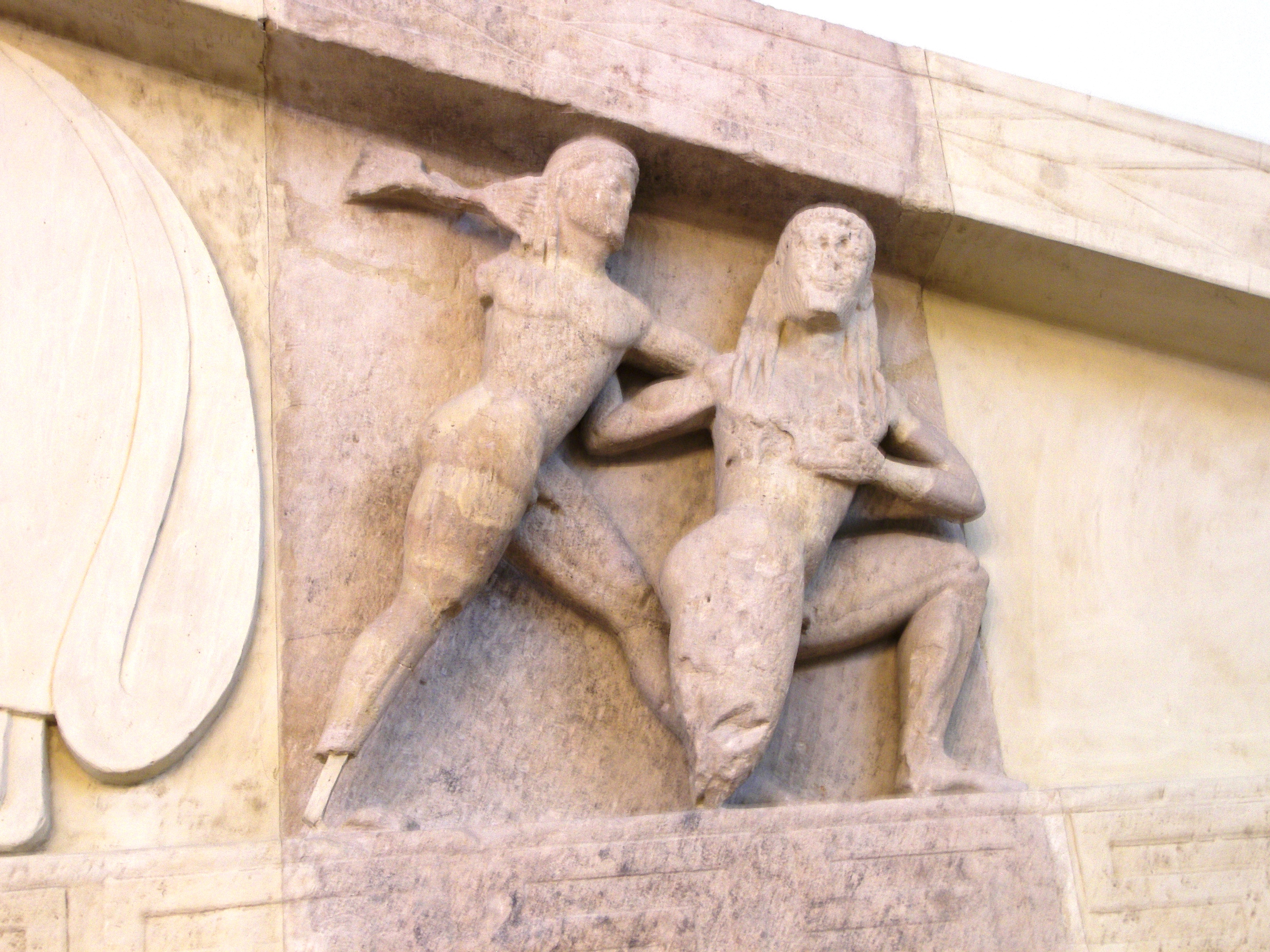Titanomachia on:
[Wikipedia]
[Google]
[Amazon]
 The ''Titanomachy'' (
The ''Titanomachy'' (
Eight surviving fragments
7th-century BC books Ancient Greek epic poems Lost poems References on Greek mythology
 The ''Titanomachy'' (
The ''Titanomachy'' (Greek
Greek may refer to:
Greece
Anything of, from, or related to Greece, a country in Southern Europe:
*Greeks, an ethnic group.
*Greek language, a branch of the Indo-European language family.
**Proto-Greek language, the assumed last common ancestor ...
: Τιτανομαχία) is a lost epic poem, which is a part of Greek mythology
A major branch of classical mythology, Greek mythology is the body of myths originally told by the ancient Greeks, and a genre of Ancient Greek folklore. These stories concern the origin and nature of the world, the lives and activities ...
. It deals with the struggle that Zeus
Zeus or , , ; grc, Δῐός, ''Diós'', label= genitive Boeotian Aeolic and Laconian grc-dor, Δεύς, Deús ; grc, Δέος, ''Déos'', label= genitive el, Δίας, ''Días'' () is the sky and thunder god in ancient Greek reli ...
and his siblings, the Olympian Gods, had in overthrowing their father Cronus and his divine generation, the Titans
In Greek mythology, the Titans ( grc, οἱ Τῑτᾶνες, ''hoi Tītânes'', , ''ho Tītân'') were the pre-Olympian gods. According to the ''Theogony'' of Hesiod, they were the twelve children of the primordial parents Uranus (Sky) and Gai ...
.
The poem was traditionally ascribed to Eumelus of Corinth (8th century BC), a semi-legendary bard of the Bacchiad
The Bacchiadae ( grc, Βακχιάδαι ''Bakkhiadai''), a tightly knit Doric clan, were the ruling family of ancient Corinth in the eighth and seventh centuries BCE, a period of Corinthian cultural power.
History
Corinth had been a backwater ...
ruling family in archaic Corinth
Corinth ( ; el, Κόρινθος, Kórinthos, ) is the successor to an ancient city, and is a former municipality in Corinthia, Peloponnese (region), Peloponnese, which is located in south-central Greece. Since the 2011 local government refor ...
, who was treasured as the traditional composer of the '' Prosodion'', the processional anthem of Messenian independence that was performed on Delos.
Even in Antiquity many authors cited ''Titanomachia'' without an author's name. M. L. WestM.L. West, "'Eumelos': A Corinthian Epic Cycle?" ''The Journal of Hellenic Studies'' 122 (2002), pp. 109–133. The present article follows West's analysis. in analyzing the evidence concludes that the name of Eumelos was attached to the poem as the only name available. From the very patchy evidence, it seems that "Eumelos"' account of the ''Titanomachy'' differed from the surviving account of Hesiod
Hesiod (; grc-gre, Ἡσίοδος ''Hēsíodos'') was an ancient Greek poet generally thought to have been active between 750 and 650 BC, around the same time as Homer. He is generally regarded by western authors as 'the first written poet ...
's ''Theogony
The ''Theogony'' (, , , i.e. "the genealogy or birth of the gods") is a poem by Hesiod (8th–7th century BC) describing the origins and genealogies of the Greek gods, composed . It is written in the Epic dialect of Ancient Greek and contain ...
'' at salient points. The 8th century BC date for the poem is not possible; West ascribes a late seventh-century date as the earliest.
The ''Titanomachy'' was divided into at least two books. The battle of Olympians and Titans
In Greek mythology, the Titans ( grc, οἱ Τῑτᾶνες, ''hoi Tītânes'', , ''ho Tītân'') were the pre-Olympian gods. According to the ''Theogony'' of Hesiod, they were the twelve children of the primordial parents Uranus (Sky) and Gai ...
was preceded by some sort of theogony
The ''Theogony'' (, , , i.e. "the genealogy or birth of the gods") is a poem by Hesiod (8th–7th century BC) describing the origins and genealogies of the Greek gods, composed . It is written in the Epic dialect of Ancient Greek and contain ...
, or genealogy of the primal gods, in which, the Byzantine writer Lydus
Lydus (Ancient Greek: Λυδός), a son of Atys and Callithea, grandson of Manes, and brother of Tyrrhenus or Torybus, is a legendary figure of the 2nd millennium BC who is attested by Herodotus to have been an early king of Lydia, then prob ...
remarked,''De mensibus'' 4.71. the author of Titanomachy placed the birth of Zeus, not in Crete
Crete ( el, Κρήτη, translit=, Modern: , Ancient: ) is the largest and most populous of the Greek islands, the 88th largest island in the world and the fifth largest island in the Mediterranean Sea, after Sicily, Sardinia, Cyprus, ...
, but in Lydia, which should signify on Mount Sipylus
Mount Spil ( tr, Spil Dağı), the ancient Mount Sipylus ( grc, Σίπυλος) (elevation ), is a mountain rich in legends and history in Manisa Province, Turkey, in what used to be the heartland of the Lydians and what is now Turkey's Aegean R ...
.
References
{{reflistExternal links
Eight surviving fragments
7th-century BC books Ancient Greek epic poems Lost poems References on Greek mythology